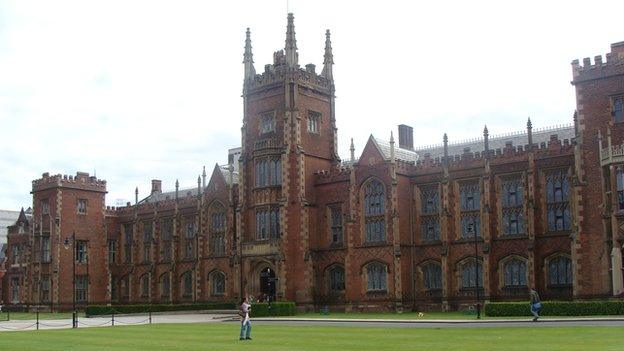Student fees could rise to £9k to plug NI universities' funding gap
- Published
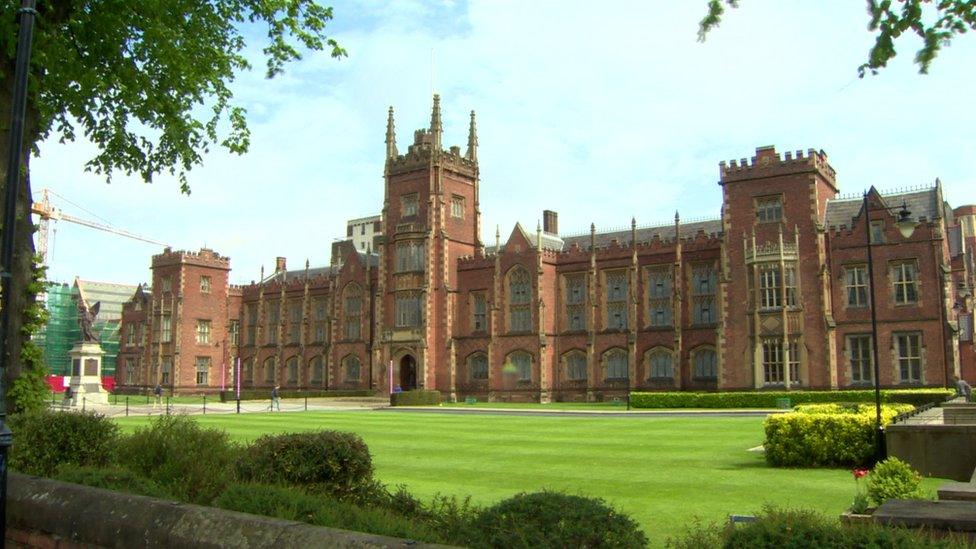
Queen's University (pictured) and Ulster University have cut jobs and student places
Student fees in Northern Ireland could rise to £9,000 if one new funding option suggested by the employment and learning minister is adopted.
Stephen Farry said a "structural underinvestment" in the higher education system had become "unsustainable".
As a result, he has suggested three basic ways of funding universities, external.
The options propose are an increase in student fees, an increase in public funding, or a joint rise in both.
But a major students' union has said it "will not tolerate any suggestion of raising tuition fees".
Plug
The funding suggestions have been put forward after a public consultation called the Big Conversation was carried out last year.
Universities were hit by cuts of more than £16m in funding from the Department of Employment and Learning in 2015-16.
Both Ulster University and Queen's University have announced job losses and reductions in the number of student places they will offer as a result.
DEL has said the changes to university funding are needed to plug a £39m gap between Northern Ireland universities and their English counterparts.
Mr Farry said that gap was "placing in jeopardy the Northern Ireland offer relative to others parts of the UK".
He added that he did not advocate any particular model, but was putting forward the suggestions for the Northern Ireland Executive to decide on a solution.
Spending
Whichever one of the options is chosen, student fees are set to break the £4,000 barrier for the first time in 2018-19.
Students currently pay £3,805 a year for a university education in Northern Ireland.
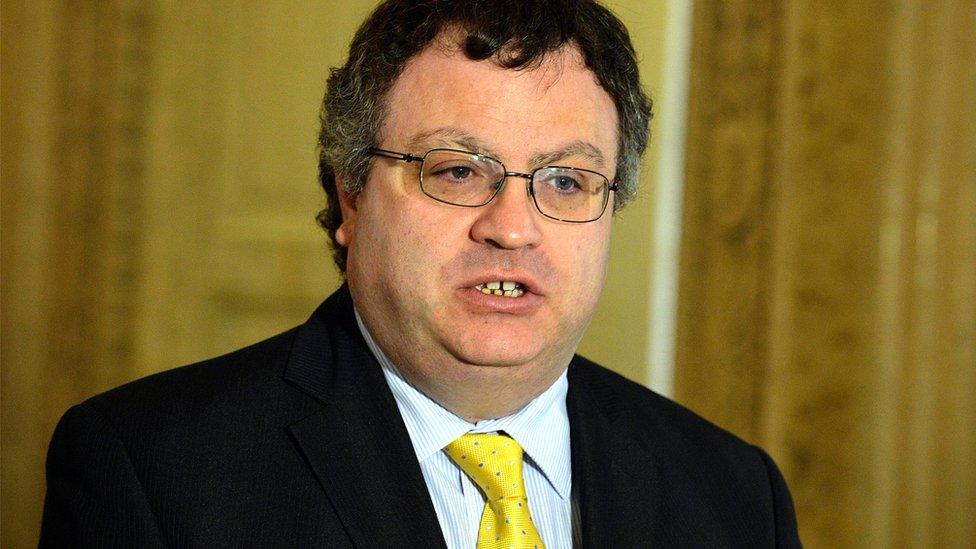
Stephen Farry said a sustainable model was needed for funding Northern Ireland's universities
In the first proposed option, public funding would increase by at least £55m, with tuition fees being raised to £4,200.
The second model suggests a fees increase of between £6,500 and £9,000, with no additional government funding.
An increase in public spending of between £27.5m and £34.1m along with a fees rise of between £5,500 and £6,000 is put forward as the final option.
Priorities
Mr Farry said "public spending constraints" would mean the funding of universities would present a "huge challenge" to the executive.
Fergal McFerran, the president of the National Union of Students - Union of Students in Ireland (NUS-USI), said higher education should be free.
"Across the world there are countries which fund tertiary education entirely through public funding," he said.
"We're very clear, we see this as a question of political priorities."
The DEL paper calculates that an extra £116m in public money would be needed to provide students with a free university education.
- Published15 September 2015
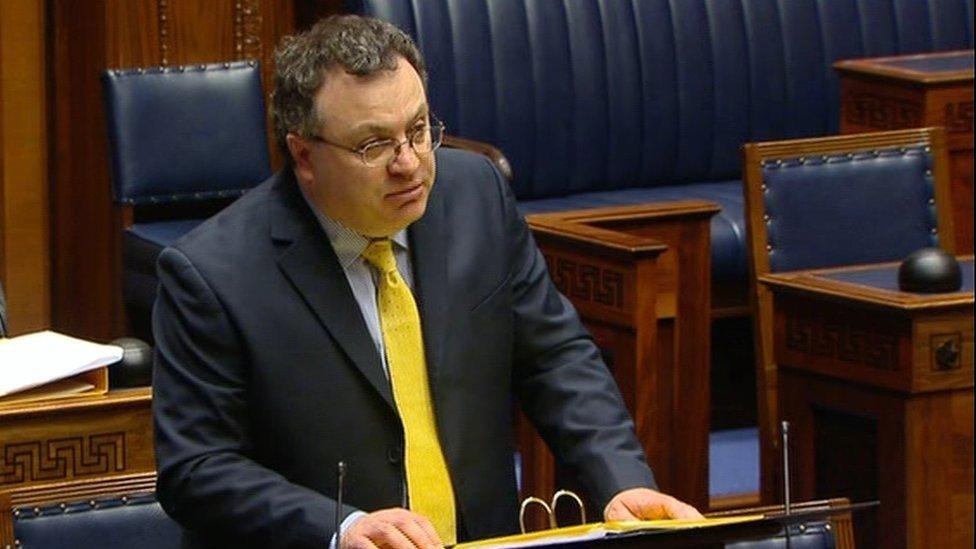
- Published18 June 2015
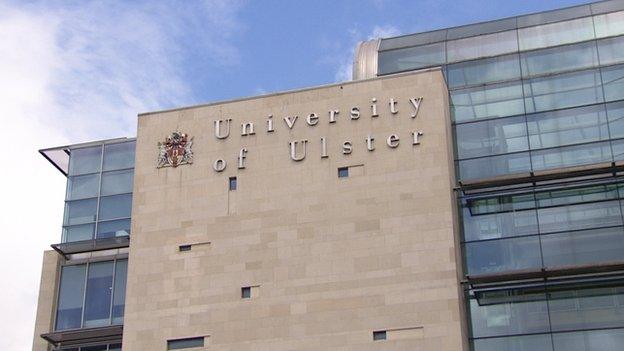
- Published14 April 2015
